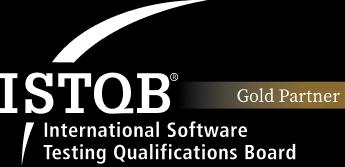
What is mobile programming? Common mobile programming languages
Mobile programming is a rapidly growing field that attracts many people's interest. To better understand mobile programming and to learn the skills and knowledge needed to become a successful mobile developer, let's explore these aspects in detail with Tokyo Tech Lab in this article.
I. What is Mobile Programming?
Mobile programming is the process of creating applications or software that run on mobile devices, such as smartphones and tablets, through a supporting platform or operating system (Android or iOS). This process includes coding, designing the user interface (UI), testing the application, and deploying the application to app stores like the App Store and Google Play. With the continuous advancement of technology, mobile programming has become an important field, offering many attractive career opportunities. It is a crucial part of modern information technology, where connectivity and mobile convenience are essential in daily life.
II. Common Mobile Programming Languages
Modern mobile programming is built on various programming languages, depending on the platform and development needs of the project. Below are some popular languages for developing applications on Android, iOS, and other diverse platforms.
1. Mobile Programming Languages for Android
1.1 Java
Java is the traditional and most popular programming language for Android. Chosen by Google as the official language since the inception of the Android operating system, Java features clear syntax, is easy to learn, and has strong community support. This allows developers to easily find documentation and receive help when encountering difficulties.

Advantages
- Clear and easy-to-learn syntax
- Large support community
- Extensive reference materials
- High performance
- Good compatibility
Disadvantages
- Syntax can be verbose
- Requires a lot of boilerplate code
- Less flexible compared to newer languages
1.2 Kotlin
Kotlin is a modern programming language recognized by Google as an official language for Android app development since 2017. Kotlin is designed to be more concise and readable than Java while remaining fully compatible with it. Kotlin offers a more concise syntax and enhanced safety, reducing programming errors and speeding up development.

Advantages
- Concise, readable, and easy-to-write syntax
- Safer than Java
- Reduces programming errors
- Speeds up development
- Fully compatible with Java
Disadvantages
- Smaller community than Java
- Fewer reference materials compared to Java
2. Mobile Programming Languages for iOS
2.1 Swift
Swift is Apple’s official and modern programming language, launched in 2014. Swift quickly became the preferred language for iOS app development due to its simple, readable, and safe syntax. Swift is also designed for high performance, allowing developers to create applications quickly and efficiently.

Advantages
- Simple, readable, and easy-to-write syntax
- High security and safety
- High performance
- Rapid application development
- Growing community
Disadvantages
- Smaller community than Objective-C
- Fewer reference materials compared to Objective-C
2.2 Objective-C
Objective-C is the traditional programming language for iOS development, predating Swift. While Swift is gradually replacing Objective-C, many older projects and libraries still use this language. Therefore, knowledge of Objective-C remains important for iOS developers.

Advantages
- Large community
- Extensive reference materials
- Supports many libraries and frameworks
Disadvantages
- Complex syntax, difficult to learn
- Harder to read and write compared to Swift
- Less safe than Swift
3. Cross-Platform Programming Languages
3.1 JavaScript with React Native
Developed by Facebook, React Native allows you to develop mobile applications for both Android and iOS using JavaScript, a popular web language. React Native offers high performance and is easy to learn if you already know JavaScript.

Advantages
- Uses JavaScript, a popular and easy-to-learn web language.
- Easy to learn and develop.
- High performance.
- Large community.
- Code can be shared between web and mobile.
Disadvantages
- Performance may be lower than native languages.
- More difficult to debug.
- Requires knowledge of React.
3.2 Dart with Flutter
Flutter is Google's open-source framework that uses the Dart language to develop cross-platform mobile applications. Flutter enables the creation of beautiful, high-performance user interfaces and rapid development.

Advantages
- Google’s open-source framework.
- Dart syntax is easy to learn and concise.
- Beautiful, high-performance user interfaces.
- Quick and easy application development.
- Rapidly growing Flutter community.
Disadvantages
- Dart is relatively new, so there may be fewer resources and libraries compared to other languages.
- Compatibility with native libraries and APIs may be limited.
3.3 C# with Xamarin
Xamarin is Microsoft's solution for cross-platform mobile development, using the C# programming language, which is popular within the .NET ecosystem, to develop applications for both Android and iOS.

Advantages
- Leverages existing C# knowledge.
- Easily integrates with other .NET solutions.
- Well-supported by Microsoft.
Disadvantages
- Performance may be lower compared to other solutions.
- Smaller Xamarin community compared to React Native and Flutter.
III. What Does Mobile Programming Involve?
Mobile programming is a dynamic and rapidly growing field, encompassing various aspects from native and cross-platform application development to optimization and maintenance. This work demands a deep understanding of programming languages, development platforms, and user interface design principles. Below are the main tasks typically performed by mobile developers:

1. Native Application Development
Native application development involves creating applications specifically for a particular operating system, such as Android or iOS. This requires developers to use the programming languages and development tools specific to that platform. For example, native Android development typically uses Kotlin and Java, while native iOS development uses Swift and Objective-C.
2. Cross-Platform Application Development
Cross-platform application development involves creating applications that can run on multiple platforms using a single codebase. This saves time and effort as developers don't need to write separate code for each platform. Common tools for cross-platform development include React Native, Flutter, and Xamarin.
3. Application Performance Optimization
Optimizing application performance is a crucial part of mobile development. This includes ensuring the app runs smoothly, quickly, and efficiently uses system resources. Key aspects of performance optimization include:
Memory Load Minimization: Developers must manage memory effectively to prevent the app from becoming slow or unresponsive. This can be achieved by optimizing code, using compression techniques, and managing resources carefully
Load Time Optimization: Apps need to start and load data quickly to enhance user experience. Developers can use caching, data compression, and asynchronous data loading to reduce load times.
User Interface Improvement: The user interface (UI) should be smooth and responsive. Techniques like lazy loading and image optimization can help improve app performance.
4. Application Updates and Maintenance
Updating and maintaining an application is an ongoing process to ensure it functions well, remains secure, and meets user needs. Key tasks in this process include:
Version Updates: Developers must regularly update the app to add new features, improve performance, and fix bugs. This also includes updating the app to be compatible with new operating system versions. Regular updates keep the app modern and enhance user experience, helping retain users.

Security: Security is a crucial aspect of application maintenance. Developers must ensure that the application is safe from attacks and protects user data. This involves implementing data encryption, user authentication, and regular security checks. Additionally, it’s vital to keep the security measures updated to counteract increasingly complex threats.
User Support: Providing technical support to users is a significant part of application maintenance. Developers need to respond swiftly and efficiently to issues that users encounter and deliver timely patches. This not only resolves technical problems but also builds user trust and satisfaction.
Monitoring and Analysis: Continuous monitoring of application performance using monitoring and analytics tools is essential. This helps in early detection of potential issues and provides insights into user interactions with the application, enabling developers to make appropriate improvements.
Performance Optimization: Based on user feedback and monitoring data, developers should optimize the application's performance. This includes improving load speeds, reducing resource consumption, and ensuring smooth operation across different devices.
User Feedback Management: Collecting and analyzing user feedback is critical to understanding areas for improvement. This feedback informs the planning of future updates to meet user needs and expectations.
Mobile programming is a multifaceted field that demands a combination of various skills and knowledge, ranging from coding, UI design, performance optimization, to maintenance and user support. It is an exciting domain offering numerous development opportunities and significantly contributes to providing the best mobile technology experiences for users.
IV. Skills and Knowledge Required to Become a Mobile Developer
Mobile programming is a challenging yet rewarding area in the information technology sector. To become a successful mobile developer, you need to equip yourself with a comprehensive set of skills and foundational knowledge, including programming languages, mobile operating systems, teamwork, and problem-solving abilities. Here’s what you need to know and learn to excel in this field.
1. What to Learn for Mobile Programming?
Knowledge of Programming Languages: You need to be proficient in at least one primary programming language for mobile development. For Android, this could be Java or Kotlin, while for iOS, Swift or Objective-C are the languages of choice. Deep understanding of these languages will enable you to write efficient code and optimize your work.
Understanding Mobile Operating Systems: In-depth knowledge of mobile operating systems like Android and iOS is essential. You should grasp the fundamental principles, operational mechanisms, and specific characteristics of each OS to develop compatible applications.
Database Management Skills: You must know how to utilize databases to store and manage application data. Familiarity with popular mobile database technologies such as SQLite or Realm is crucial. Understanding how to perform CRUD (Create, Read, Update, Delete) operations and optimize queries is necessary to maintain performance.
UI/UX Design Skills: Designing a good user interface (UI) and ensuring a positive user experience (UX) are crucial for making your application appealing and easy to use. You need to understand design principles, common design patterns, and be adept with design tools like Figma, Sketch, or Adobe XD.

API and Web Services: The ability to connect applications with web services is crucial. You need to know how to use APIs to retrieve data from servers, handle JSON, and utilize libraries like Retrofit for Android and Alamofire for iOS to work with APIs efficiently.
Mobile Application Security: Security is a critical factor in app development. You need to be knowledgeable about encryption techniques, managing sensitive data, and various security methods to protect your application from attacks. This includes using HTTPS, encrypting stored data, and implementing secure user authentication.
Logical Thinking and Problem-Solving Skills: The ability to think logically and solve problems is fundamental. It helps you to write organized code and tackle complex issues during the development process.
Teamwork and Communication Skills: Mobile application development is often a team effort. Effective teamwork and communication skills are essential to collaborate smoothly with other team members, thereby enhancing the quality and progress of the project.
2. Tools and Development Environment
To develop mobile applications effectively, it’s crucial to become familiar with and proficient in the following tools and development environments:
Popular IDEs: Using Integrated Development Environments (IDEs) is essential. Android Studio is the primary IDE for Android app development, offering powerful tools for writing, testing, and debugging code. Xcode is Apple’s official IDE for iOS development, providing a comprehensive environment with simulators, testing tools, and debugging capabilities.
Source Code Management: Using Git to manage and track changes in your source code is a fundamental skill for every developer. Git enables efficient collaboration within a team, tracks the history of code changes, and allows easy rollback to previous versions in case of errors.
Testing and Debugging Tools: Proficiency in testing and debugging tools is crucial to ensure the quality of your application. You need to know how to use tools like JUnit for unit testing, Espresso for UI testing on Android, and XCTest for testing on iOS. The debugging tools in Android Studio and Xcode help you quickly find and fix issues in your code.
By equipping yourself with these skills and knowledge, along with becoming familiar with and proficient in the necessary tools and development environments, you will have a solid foundation to become a professional mobile developer, ready to tackle any challenges in this field.
V. Conclusion
Mobile programming is a challenging yet fascinating and opportunity-rich field. With the continuous advancement of mobile technology, the demand for high-quality applications is ever-increasing. To become a successful mobile developer, mastering the essential skills and knowledge is crucial. Hopefully, the content in this article provides you with valuable insights into mobile programming. Don’t forget to follow us for more informative content on information technology!
See related articles:
SHARE THIS ARTICLE
Author
Huyen TrangSEO & Marketing at Tokyo Tech Lab
Hello! I'm Huyen Trang, a marketing expert in the IT field with over 5 years of experience. Through my professional knowledge and hands-on experience, I always strive to provide our readers with valuable information about the IT industry.
More Posts



About Tokyo Tech Lab
Services and Solutions
Contact us
© 2023 Tokyo Tech Lab. All Rights Reserved.







